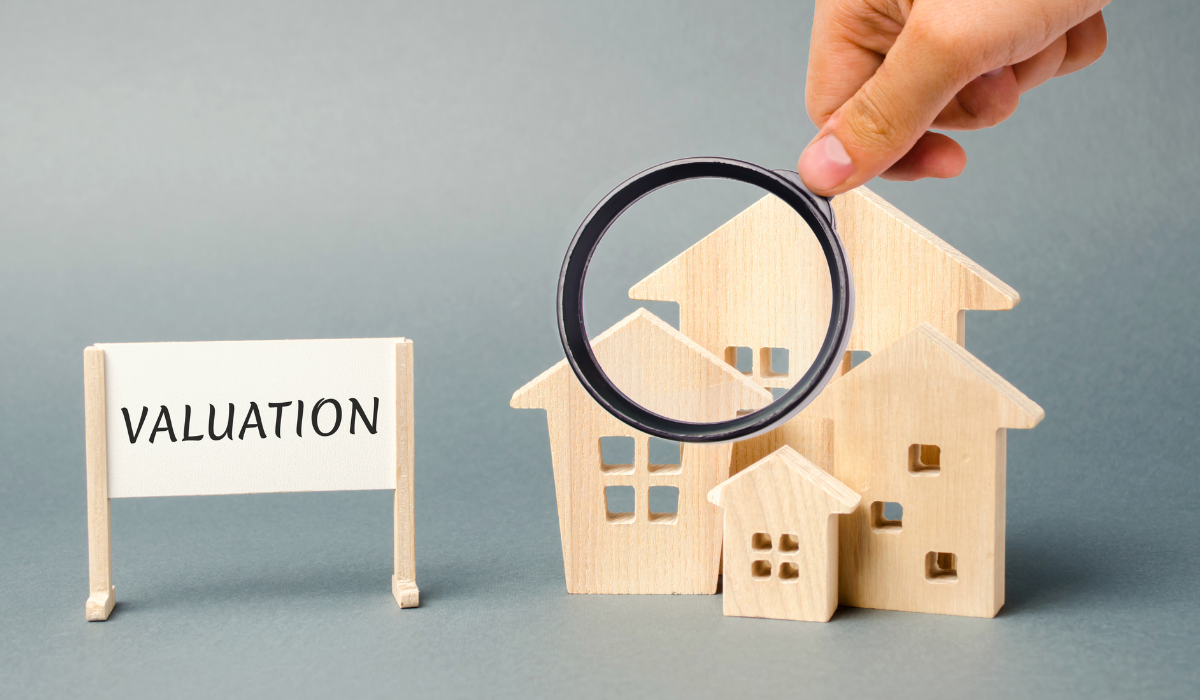How to Create Efficiency and Fairness in Valuations for Home Equity Lending?
Home equity lending offers homeowners an opportunity to access the value of their property without having to sell it.
However, the process of valuing a home for equity lending can be complex and must strike a balance between efficiency and fairness.
Properly managed valuations ensure that homeowners receive accurate and equitable assessments of their property’s value while lenders mitigate risks associated with loan defaults.
This article explores the critical strategies for creating efficiency and fairness in home equity valuations , ensuring a transparent and effective lending process.
Understanding Home Equity Lending
Home equity lending involves borrowing against the value of a home.
The most common types are home equity loans and home equity lines of credit (HELOCs).
To determine how much a homeowner can borrow, lenders need an accurate valuation of the property.
This valuation must be fair to both the borrower and the lender and conducted efficiently to meet the needs of all parties involved.
The Importance of Accurate Valuations
Accurate property valuations are critical in home equity lending for several reasons:
- Fairness: An accurate appraisal ensures that homeowners are well-rested with debt relative to their property’s value.
- Risk Management: For lenders, precise valuations help manage the risk of loan defaults by preventing over-lending based on inflated property values.
- Regulatory Compliance: Accurate valuations ensure compliance with regulatory requirements and standards, reducing the risk of legal issues.
Critical Components of an Efficient Valuation Process
Efficiency in the valuation process can significantly enhance the overall home equity lending experience.
Here are some key components to consider:
- Streamlined Application Process: Simplifying the loan application process helps reduce delays. Implementing online application platforms and automating data collection can accelerate the initial stages of the lending process.
- Technology Integration: Utilizing technology, such as Automated Valuation Models (AVMs) and Geographic Information Systems (GIS), can speed up valuations. AVMs use data analytics to estimate property values quickly, while GIS can provide valuable spatial data.
- Pre-Inspection Assessment: Conducting pre-inspection assessments or preliminary evaluations before a formal appraisal can help identify potential issues and streamline the process.
Ensuring Fairness in Valuations

Fairness in valuations ensures that all parties involved receive equitable treatment. Strategies to ensure fairness include:
- Utilizing Independent Appraisers: Engaging independent and certified appraisers who are free from conflicts of interest ensures impartiality in the valuation process. Appraisers should adhere to industry standards and ethical guidelines.
- Standardized Valuation Methods: Employing standardized valuation methods, such as the Comparable Sales Approach, Cost Approach, and Income Approach, ensures consistency and fairness. These methods use objective data to assess property value.
- Regular Reviews and Audits: Regularly reviewing and auditing the valuation process helps identify and address any discrepancies or biases. Lenders should establish procedures for monitoring appraisal accuracy and fairness.
Addressing Potential Challenges
Several challenges can arise in home equity valuations. Addressing these challenges proactively can improve efficiency and fairness:
- Market Fluctuations: Property values can fluctuate due to market conditions. To address this, appraisers should use recent and relevant data to ensure valuations reflect current market trends.
- Subjectivity in Appraisals: Appraisals can be influenced by subjective judgments. Standardizing appraisal reports and requiring detailed explanations for value adjustments can minimize subjectivity.
- Inconsistent Data Sources: Inconsistent data sources can affect valuation accuracy. Ensuring that appraisers use reliable and up-to-date data from reputable sources can improve consistency.
Regulatory and Industry Standards
Adhering to regulatory and industry standards is crucial for ensuring fairness and efficiency in valuations. Essential standards and regulations include:
- Uniform Standards of Professional Appraisal Practice (USPAP): USPAP provides guidelines for appraisers to follow, ensuring consistency and ethical conduct in the appraisal process.
- Dodd-Frank Wall Street Reform and Consumer Protection Act: This legislation includes provisions related to appraisal independence, requiring that appraisers remain unbiased and independent from lenders and brokers.
- Home Valuation Code of Conduct (HVCC): The HVCC establishes standards for appraisals in the home mortgage industry, focusing on independence and transparency.
Best Practices for Home Equity Lenders
Home equity lenders can implement best practices to enhance the efficiency and fairness of their valuation processes:
- Clear Communication: Clearly communicate the valuation process and requirements to borrowers. Transparency helps manage expectations and fosters trust.
- Training and Education: Provide ongoing training and education for appraisers and staff involved in the valuation process. Staying informed about industry trends and best practices can improve valuation accuracy and efficiency.
- Feedback Mechanisms: Implement feedback mechanisms for borrowers and appraisers to report issues or concerns. Addressing feedback promptly can help refine the valuation process.
The Role of Data Analytics in Enhancing Valuation Accuracy
Data analytics plays a crucial role in modernizing home equity valuations. By leveraging large datasets and sophisticated algorithms, lenders and appraisers can improve the precision of property valuations. Key benefits of data analytics include:
- Predictive Analytics: Using historical data and predictive models can help anticipate market trends and property value fluctuations. This foresight enables more accurate and timely valuations.
- Big Data Integration: Integrating diverse data sources, such as neighborhood demographics, economic indicators, and recent sales data, provides a more comprehensive view of a property’s value.
- Automated Valuation Models (AVMs): AVMs use algorithms to analyze data and provide property value estimates quickly. While they should not replace human appraisers, AVMs can serve as a valuable tool for initial assessments and speed up the process.
The Impact of Property Condition and Upgrades on Valuations
The condition of a property and any recent upgrades can significantly impact its value. To ensure fairness in valuations, it is essential to consider these factors:
- Condition Assessments: Appraisers should conduct thorough inspections to evaluate the property’s condition. Issues such as structural damage, outdated systems, or deferred maintenance should be factored into the valuation.
- Upgrades and Renovations: Recent upgrades, such as remodeled kitchens or new roofing, can enhance property value. Appraisers should assess the quality and cost of these improvements and their impact on the overall value.
- Documentation: Homeowners should provide documentation of recent upgrades and renovations, including receipts and permits, to help appraisers accurately reflect these improvements in the valuation.
Conclusion
In conclusion, achieving efficiency and fairness in home equity valuations is crucial for fostering trust and ensuring a smooth lending process.
By integrating advanced technology, adhering to industry standards, and maintaining transparency, stakeholders can enhance the accuracy and equity of property valuations.
Engaging homeowners, addressing potential biases, and staying compliant with legal requirements are essential steps in creating a valuation process that effectively serves both borrowers and lenders.
As the home equity lending landscape continues to evolve, embracing innovative solutions and best practices will be vital in navigating its complexities.
For personalized guidance and professional support in your home equity lending journey, reach out to us at The Perfect Piece .
Let’s work together to ensure your valuation process is both efficient and fair.
FAQs
What is home equity lending, and why is accurate valuation important?
Home equity lending allows homeowners to borrow against the value of their property without selling it. Accurate valuations are crucial to ensure that borrowers are not overburdened with debt relative to their home’s value and that lenders can manage risk effectively. Accurate appraisals also help in regulatory compliance and prevent loan defaults.
What are some critical components of an efficient valuation process?
Key components include:
- Streamlined Application Process: Simplify the application process using online platforms and automated data collection to reduce delays.
- Technology Integration: Use Automated Valuation Models (AVMs) and Geographic Information Systems (GIS) to speed up valuations with data analytics and spatial information.
- Pre-Inspection Assessments: Conduct preliminary evaluations to identify potential issues and streamline the formal appraisal.
How can fairness be ensured in home equity valuations?
Fairness can be ensured by:
- Utilizing Independent Appraisers: Engage certified, independent appraisers who adhere to industry standards and ethical guidelines.
- Standardized Valuation Methods: Use consistent valuation methods, such as Comparable Sales Approach, Cost Approach, and Income Approach, to ensure objective assessments.
- Regular Reviews and Audits: Periodically review and audit the valuation process to address discrepancies and biases.
What challenges can affect home equity valuations, and how can they be addressed?
Challenges include:
- Market Fluctuations: Use recent and relevant data to reflect current market trends.
- Subjectivity in Appraisals: Standardize appraisal reports and require detailed explanations for value adjustments to minimize subjective judgments.
- Inconsistent Data Sources: Ensure the use of reliable, up-to-date data from reputable sources to improve consistency.
What regulatory and industry standards should be adhered to for fair valuations?
Key standards and regulations include:
- Uniform Standards of Professional Appraisal Practice (USPAP): Provides guidelines for consistency and ethical conduct.
- Dodd-Frank Wall Street Reform and Consumer Protection Act: Includes provisions for appraisal independence.
- Home Valuation Code of Conduct (HVCC): Establishes standards for independence and transparency in appraisals.
What best practices can home equity lenders follow to enhance valuation efficiency and fairness?
Best practices include:
- Clear Communication: Transparently communicate the valuation process and requirements to borrowers.
- Training and Education: Provide ongoing training for appraisers and staff to stay updated on industry trends and best practices.
- Feedback Mechanisms: Implement mechanisms for borrowers and appraisers to report and address issues promptly.
How does data analytics contribute to enhancing valuation accuracy?
Data analytics improves valuation accuracy through:
- Predictive Analytics: Uses historical data and models to anticipate market trends and property value changes.
- Big Data Integration: Combines various data sources for a comprehensive property value view.
- Automated Valuation Models (AVMs): These provide quick property value estimates using algorithms, serving as valuable tools for initial assessments.
How do property conditions and upgrades affect valuations?
Property condition and upgrades significantly impact valuations:
- Condition Assessments: Appraisers evaluate the property’s condition, including any structural issues or maintenance needs.
- Upgrades and Renovations: Recent improvements, such as remodeled kitchens or new roofing, can enhance property value. Homeowners should document these upgrades to accurately reflect their impact.
The post How to Create Efficiency and Fairness in Valuations for Home Equity Lending? appeared first on Perfect Piece.











